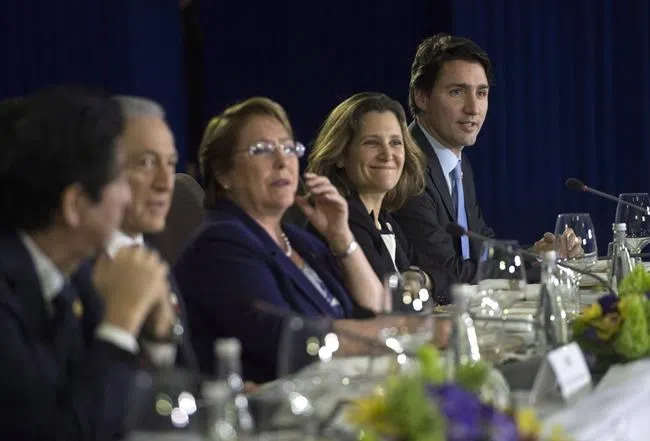
Canada, old TPP members resurrect trade deal without U.S., but questions remain
OTTAWA — Canada and the remaining members of the old Trans-Pacific Partnership have breathed new life into a trade deal that will forge ahead without the United States and open distant new markets at a time of uncertainty closer to home.
The agreement was struck Tuesday after two days of high-level talks in Tokyo — exactly one year after U.S. President Donald Trump withdrew his country from the Pacific Rim treaty. The fresh commitment left Japan as the largest player in a new 11-nation pact that spans two hemispheres and includes both U.S. neighbours.
Prime Minister Justin Trudeau hailed the revised agreement as the “right deal” and called it a new step on the path to ensuring the benefits of trade are shared by everyone, not just the rich.
But with only a few publicly available details following the announcement, many questions remained unanswered Tuesday. And there some criticized the process for largely taking place in secrecy.
